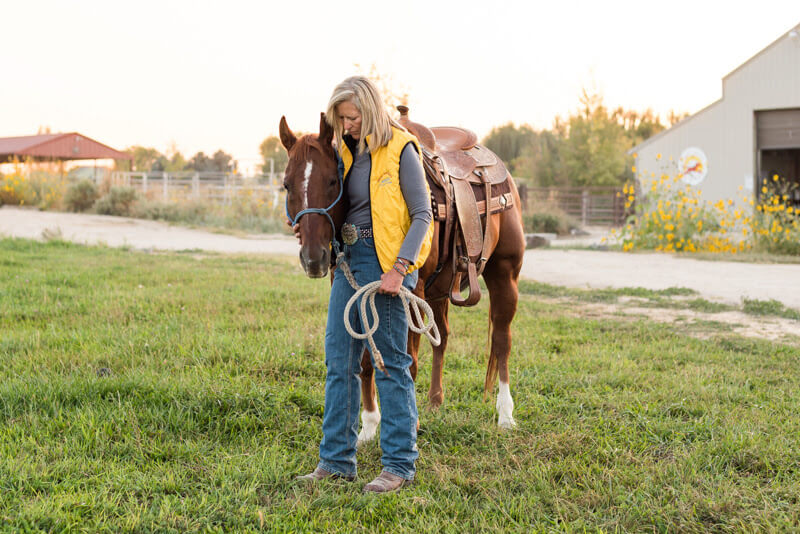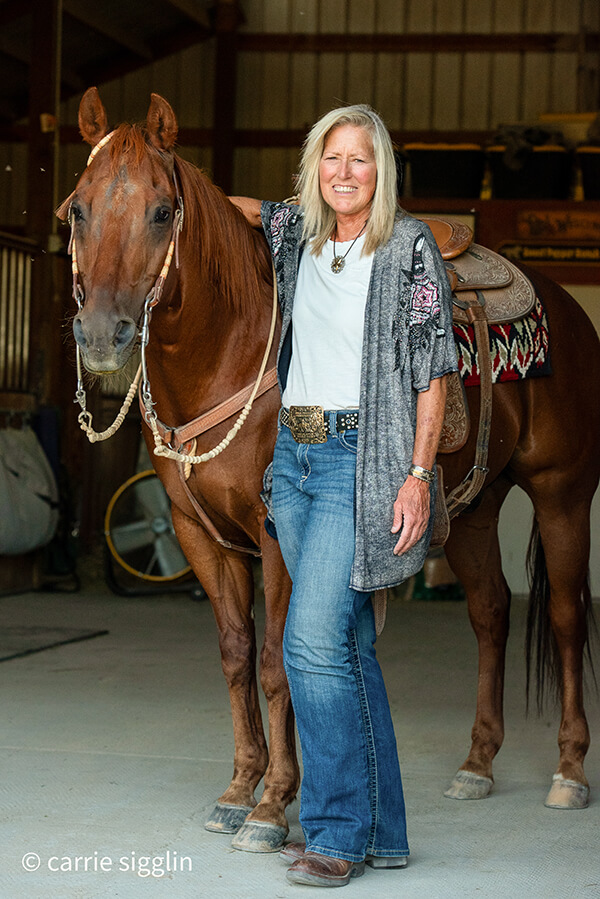by Alayne Blickle
(From March 2020 Horses for Clean Water Newsletter)

Over the 40 plus years I’ve owned horses, I have experienced a variety of what were (at the time) frightening outbreaks of equine diseases—Potomac horse fever, Equine Protozoa Myolitis, West Nile virus, and Equine Herpesvirus Neurologic, to name a few. At first, they were terrifying in the way that something new and unknown always is. But the more we learned about the disease and its transmission, the more fear gave way to management strategies.
The first line of defense for horse diseases (besides vaccinations) is always to practice good biosecurity: avoid transporting horses, keep horses apart from each other and don’t let them sniff noses, don’t share equipment, and keep everything clean. Afterwards, with research and experience, science will find vaccines and improve understanding of the disease so we can better manage it.
The worldwide pandemic facing every human on the planet is not simply an outbreak, it’s a new disease never seen before by our species. However, this equine analogy still applies to our situation. Just as with our horses, we can slow the spread of coronavirus by avoiding travel, keeping well apart from other people, not sharing personal items, and keeping everything clean, from our hands to the things we touch every day.
The more we slow the transmission of COVID-19, the better prepared medical staff will be to handle triage and management, plus the more time there will be to bring science to the management equation.
In the meantime, we can still ride (especially for those with horses on their own property), exercise, and care for our horses. This is important for their well-being and ours. There is also much that we can do to maintain our horse properties, especially if we find ourselves with a little extra time on our hands. At Sweet Pepper Ranch, one of the things we’re doing in our “spare” time is building another hitching post outside. Not only will this be handy for the future (it’s right next to the round pen), but it gives our boarders another place to tie and groom their horses so they are spread out outside in good ventilation—good for social distancing!
Here are a few other healthy, low-budget ways to make the most of social distancing while patiently waiting out COVID-19:
- Hang nest boxes for insect-eating birds. There are a great variety of nest boxes to choose from, ranging from DIY plans you can find online to complete boxes you can order. In most parts of North America, insectivores like violet-green swallows, tree swallows, purple martins, and blue birds are returning from Central America where they overwinter and are just starting to look for nesting sites. March and April are the perfect time to put up new nesting boxes to attract these birds to your property. For more information, check out our tip sheet, The Swallows are Coming: Natural Insect Control for Horse Farms, which includes plans for building a violet-green or tree swallow box.
- Install barn owl boxes or kestral boxes to invite raptors to help with rodent control on your property. Join us at our online course Hedgerows, Owl Boxes, and Horses on Wednesday, April 1, to learn more about these beautiful birds and how they can work for you.
- Plan out your pollinator hedgerow for this summer. There are many beautiful flower options, but be sure to choose native varieties, as these have pollen that local pollinators have evolved alongside. These articles from the Forest Service and the Natural Resources Conservation Service are excellent resources, and Wednesday’s online class Hedgerows, Owl Boxes, and Horses will provide examples and ideas on how to plan a pollinator hedgerow.
- Plant a garden for yourself—and share some treats with your horses, too! Composted horse manure is an excellent soil additive for your garden plot. See our 5 Easy Steps to Compost tip sheet for tips on how to turn your horse manure into gardening gold.
- Take one of our online classes, which cover a variety of horse keeping topics. There’s still time to take advantage of our #StayHome Discount pack, which saves you 47% when you book any three classes! You can even request a recording of one of our previous online classes. Taking time to focus on healthy topics can keep you moving forward in your horsemanship and land management goals. As you put what you learn into practice, tag your photos with #stayhome and #hcwrockstars so we can see your progress.
- Schedule a private online consultation with Alayne to discuss how you can move ahead with your land management plans for your horse property. Get ideas for mud control and drainage, manure management and composting, and pasture management and weed control—as well as a host of other horse keeping and equine enrichment tips.
Let’s think of COVID-19 like we would a horse disease: stay calm, evaluate the big picture, listen to advice from trusted resources, practice good biosecurity, and keep riding.
We look forward to seeing you down the road—in person!

Alayne Blickle began in the 1990’s as a pioneer in water conservation and natural resources conservation by creating the entrepreneurial consulting business, Horses for Clean Water, an award-winning internationally acclaimed education program that looks for horse-healthy, nature-based solutions to land management challenges. She continues this work today partnering with agencies, organizations, and horse owners throughout North America and worldwide. She is a regularly contributing writer and photojournalist to several equine publications.
Alayne lives with her horse trainer husband, Matt Livengood, in southwestern Idaho where they raise and train AQHA horses and mustangs on their eco-friendly horse ranch. Contact her through the Horses for Clean Water website or through their ranch website Sweet Pepper Ranch.
For more information contact Alayne at [email protected] or 206-909-0225.



